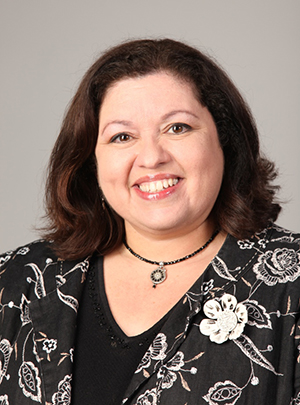Baylor University names diversity adviser and task force
WACO—Baylor University named Elizabeth Palacios, dean for student development, as special assistant to the president on diversity and created a regents task force on diversity.
 Elizabeth Palacios Palacios, who has 35 years experience in higher education, will work in the new role with Baylor President Ken Starr and the President’s Advisory Council on Diversity, while continuing as a dean in Baylor’s division of student life. In January, Starr named 13 faculty, staff and students to the advisory council.
Elizabeth Palacios Palacios, who has 35 years experience in higher education, will work in the new role with Baylor President Ken Starr and the President’s Advisory Council on Diversity, while continuing as a dean in Baylor’s division of student life. In January, Starr named 13 faculty, staff and students to the advisory council.
“We are delighted that Dr. Palacios has agreed to provide her expertise through this important role. We welcome her vast experience in helping our students, faculty and staff embrace the diverse ethnic and cultural backgrounds that make up the fabric of our campus community,” Starr said.
“Her deep understanding of and warm partnership with students will be especially important as we implement a wide range of programs and initiatives central to greater cultural awareness and competency.”
Regents task force appointed
The four former members of Baylor’s board of regents named to the new task force on diversity are Albert Black, an entrepreneur who served as the first African-American chair of the Dallas Regional Chamber and former chair of the Baylor Health Care System; Ramiro Peña, founding pastor of Christ the King Baptist Church in Waco; Donell Teaff of Waco, a founder of the American Football Coaches Wives Association; and Sue Getterman, Waco philanthropist and regent emerita.
The task force will begin campus meetings to “deepen the dialogue with university administration on how to better support initiatives to increase diversity among students, faculty and staff,” according to a statement issued by Baylor. The group will present a report to the board of regents at its July retreat.
“The board of regents is incredibly grateful to these former regents for their willingness to commit their time to better understanding the campus conversations about diversity and inclusiveness,” said Chair Richard Willis. “The work of this group will help the board learn more about ways we can support the administration and offer resources that move Baylor forward.”
Diversity as a ‘code word’
After Starr announced the diversity initiative last fall, it met with some resistance. Elizabeth Corey, associate professor of political science in Baylor’s Honors College, published an article asserting diversity in a Christian university must be balanced against the institution’s tradition, heritage and constituency.
“In practice, diversity is understood—by both its supporters and detractors—as a code word, a means of smuggling certain unspoken values into institutions,” Corey wrote.
While Christian institutions should embrace some aspects of diversity, they should approach it cautiously, she advised.
“Christian schools should think long and hard about exactly what kind of diversity they wish to promote before they sign their souls over to the secular rule of diversity officers,” Corey wrote. “If they don’t, they might live to regret it.”
Central to Baylor’s Christian mission
In announcing Palacios’ appointment, Baylor officials pointedly noted while the President’s Advisory Council on Diversity will focus on “understanding the diverse perspectives of faculty, staff and students and developing long-term strategic recommendations,” the university “will continue to implement immediate improvements central to its Christian mission.”
Palacios will review existing processes for identifying and responding to acts “inconsistent with the university’s caring, Christian community,” a public statement from Baylor said.
She also will seek to enhance opportunities for students to engage in cultural activities such as a Civil Rights tour, pursue an exchange program with historically African-American colleges and universities, continue to seek speakers and performers of multicultural backgrounds for on-campus programs and engage in multicultural student recruitment efforts.
Other initiatives include a campus climate survey to support continuous improvements within the campus community and cultural competency training opportunities to facilitate a deeper understanding and awareness among faculty, staff and students.
“Many of the ideas that have been implemented or are on the verge of implementation were drawn out of our conversations with students,” said Kevin Jackson, vice president for student life.
“We have a strong partnership with students, faculty and staff, and Dr. Palacios has been a vital part of that work. We have great confidence in Dr. Palacios and believe her added role as adviser to the president will be a very important component of maintaining and enhancing an authentic community where we listen to, care for and learn from one another.”